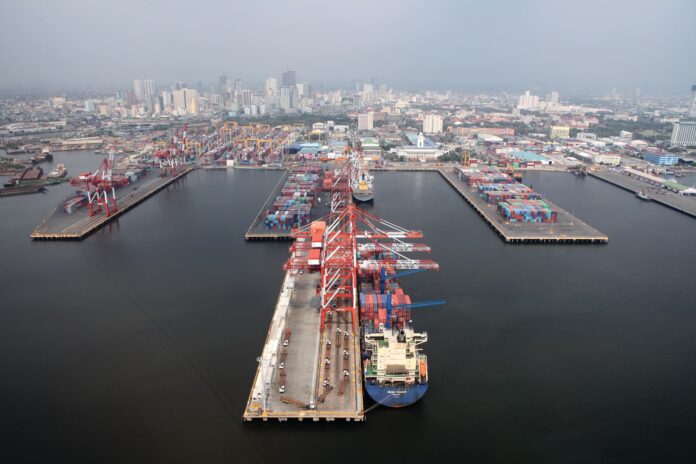- Philippine Ports Authority Administrative Order No. 09-2020 extends validity of the Permit to Operate (PTO) issued to ancillary services from one year to three years
- Shipping lines and shipping companies no longer required to secure a PTO but must still secure Accreditation Certificate
- Application for a PTO will be done online with manual filing of application allowed only in exceptional cases
The Philippine Ports Authority (PPA) has extended the validity of the Permit to Operate (PTO) issued to ancillary services from one year to three years. At the same time, the agency exempted shipping companies from the requirement to secure a PTO.
These are rules under PPA Administrative Order (AO) No. 09-2020, which revised guidelines on the issuance of PTO. The AO takes effect on December 15.
PPA requires all port service providers at ports under its jurisdiction to secure a PTO before rendering any service.
Under AO 09-2020, an accreditation for a specific port service issued by PPA is also required in the issuance of a PTO. Last year, PPA issued revised guidelines and standardized fees for the issuance of accreditation to port service providers, and included more service providers in the coverage.
Ancillary services under AO 09-2020 include shipping agent, transport service/cargo forwarding/freight forwarding/hauling/trucking/shuttling/bus, hauling of own cargoes/transport of own employees or guests, bunkering, booking/ticketing office, canteen, cargo checking, cargo surveying, chandling, cleaning service, container repair, and communication service.
It also includes equipment hire, equipment repair, environmental management service, fumigation, laundering, lighterage/barging, parking/garage, reproduction/photocopy, security service, shops/stores, towing/tugging service, vessel repair/maintenance, water supplier, water taxi, weighbridge/truck scale, and other businesses and services that may be classified by PPA as port service.
List of exempted service providers
Excluded from the requirement to secure a PTO—considering that their services provided are already authorized under a contract, certificate or authority issued by PPA—are port terminal operators, cargo-handling operators, passenger terminal building operators, roll-on/roll-off service operators, harbor pilots, security agencies, private port operators; and all other port service providers with contract, authorization, or approval issued by PPA.
Shipping lines and shipping companies will no longer be required to secure a PTO under AO 09-2020, but they are still required to secure an Accreditation Certificate.
Additionally, where a service is rendered or to be rendered in the port is not on a regular basis, a PTO will not be required.
AO 09-2020 notes that a service is considered regular when it is rendered or to be rendered in the port more than once a year. However, an Authority to Transact (ATT) should be secured from the concerned port manager. An ATT will be valid only for a particular service and for a certain period, and it will not require an accreditation certificate.
Under AO 09-2020, a PTO will be issued on a per port service basis. A PTO issued by the concerned Port Management Office will be valid only in the port or terminal indicated in the PTO.
A PTO is now valid for three years from the date of issuance, as opposed to the annual validity previously.
PTO renewal, seminar attendance
To ensure continuity of port services, AO 09-2020 says renewal of PTO should be filed within 60 days before expiration. The validity of the Port Service Provider Annual Vehicle and Pedestrian Access Pass will also be co-terminus with the issued PTO and can be filed when an application for PTO is filed.
Attendance to the Basic Port Operations Seminar (BPOS) will be required as post-approval condition in the issuance of PTO, to be attended by the personnel and workers of the port service provider not later than 30 days from the issuance of PTO. Newly hired personnel or workers of the port service provider are also required to attend the BPOS before transacting and entering PPA premises.
As far as practicable, the BPOS will be conducted online. Where a face-to-face seminar is requested for valid reasons, the social distancing and other health protocols will be observed.
In line with the streamlining policy of PPA, the documentary requirement for the issuance of PTO is a duly filled out application form which can be done through the PPA Electronic Permit Management System, https:///epms.ppa.com.ph.
The web-based system, available since 2016, facilitates the application, approval, and issuance of permits initially for port ancillary service and vehicle/port users’ pass. It also allows monitoring and tracking of application of permits and passes, and the online viewing and updating of the port user’s profile with PPA.
Manual filing of application will be allowed only in exceptional cases such as when the online system is down, AO 09-2020 states.
PTO revocation
Further a PTO may be revoked and cancelled on the following grounds:
- Violations of any of the terms and conditions stated in the PTO
- Violation of any PPA policy, regulation or issuance
- Provision of services other than those specified in the PTO
- Using the PTO to engage in nefarious, illegal, immoral and vicious activity
- When the Accreditation Certificate has been revoked or cancelled
- When public interest so requires
The PTO now costs P10,500, while an ATT and replacement of certificate cost P600 each.
AO 09-2020 amends, modifies, or repeals PPA AO 08-96 (regulations for the registration and/or grant of PTO to ancillary services) and other inconsistent rules and regulations. – Roumina Pablo





